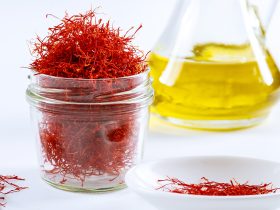When it comes to cardiovascular health, high blood pressure poses a significant threat. As we strive to comprehend the most effective methods of prevention and management, a recent study, spotlighted in Nature Scientific Reports, delves into the intriguing possibility of dark chocolate’s role in reducing the risk of essential hypertension (high blood pressure).
This research not only sheds light on the potential blood pressure-lowering effects of dark chocolate but also hints at its ability to mitigate the risk of blood clots. However, it’s crucial to note that the study couldn’t conclusively establish a causal relationship between dark chocolate consumption and these health benefits.
These findings beckon us to recognize the potential advantages that dark chocolate may harbor. Yet, they also emphasize the necessity for continued research to delve deeper into the specific health benefits this delectable treat might offer.
Why is hypertension dangerous and how can dark chocolate help
Hypertension, or high blood pressure, unfolds when the force exerted by blood on the body’s arteries becomes alarmingly elevated. Delving deeper into the intricacies, essential hypertension emerges as a concerning variant, characterized by elevated blood pressure without a discernible cause.
Hypertension is a global health concern, being a leading contributor to cardiovascular ailments like coronary artery disease, heart failure, and stroke.
While high blood pressure is manageable through lifestyle adjustments and specific medications, proactive measures can thwart its onset.
Cultivating a healthy diet, maintaining an ideal weight, and engaging in regular exercise constitute pivotal strategies in this preventative endeavor. The potential to influence blood pressure through dietary choices has led researchers to scrutinize the impact of specific foods, offering the prospect of tailored nutritional interventions.
Among the foods under the research spotlight, dark chocolate emerges as a tantalizing subject. To be considered dark, chocolate must contain a minimum of 50% cocoa solids, often reaching higher percentages like 70% or 90%, minimizing additives like sugar.
Beyond its tempting taste, dark chocolate proves to be a nutritional treasure trove, boasting significant amounts of fiber, iron, magnesium, phosphorus, and zinc. It is definitely essential to opt for more natural forms of cocoa to maximize these benefits. However, a word of caution accompanies this delectable treat – the higher the cocoa percentage, the greater the caffeine content.
Why is dark chocolate a good choice for hypertension
In the pursuit of understanding how dark chocolate contributes to lowering the risk of various cardiovascular diseases, researchers employ the intricate technique of Mendelian randomization.
This methodology relies on scrutinizing genetic differences to furnish evidence supporting the causal effects of a specific intervention, thereby mitigating the risk of reverse causation. While not infallible, this approach allows for data collection and safety measures not always feasible in other studies, constrained by ethical considerations.
In this study, researchers harnessed data from publicly available genome-wide association studies, delving into the intricate relationship between dark chocolate intake and the risk of diverse cardiovascular ailments. The scope encompassed essential hypertension, coronary heart disease, heart failure, stroke, venous thromboembolism, blood clots originating in the veins, and heart attack.
The analysis yielded promising results, particularly in highlighting the potential benefits of dark chocolate intake. The genetically predicted intake of dark chocolate emerged as a potential ally in lowering the risk of essential hypertension. This revelation suggests a plausible causal link between dark chocolate consumption and a decreased risk of essential hypertension.
The study didn’t stop at essential hypertension; it extended its gaze toward venous thromboembolism, a condition marked by the formation of blood clots in veins. Intriguingly, a possible association surfaced between dark chocolate intake and a diminished risk of venous thromboembolism.
This insight adds another layer to the potential protective effects of dark chocolate on cardiovascular health.
Will we have medication derived from dark chocolate?
Despite the study’s inherent limitations, scientists believe the research might lead to revised dietary recommendations. In addition, it may also pave the way for the utilization of bioactive compounds or extracts derived from dark chocolate in the creation of innovative therapies for preventing or managing essential hypertension.
The study, in essence, opens the door to exciting possibilities for the future of essential hypertension prevention.
While the study reveals a specific association between dark chocolate intake and a reduced risk of hypertension, we need to maintain a tempered perspective. Acknowledging the significance of this finding, we shouldn’t overlook its limitations in clinical implications.
The focus of concern in clinical cardiovascular scenarios typically revolves around the potential impact of hypertension on conditions like heart attack and stroke. However, the researchers did not identify any associations between dark chocolate intake and other cardiovascular diseases, thus restricting the broader clinical applicability of the study.
Is dark chocolate healthy?
The study had a small group of people, which might affect how reliable the results are. Also, they lost some information about strokes and heart failure, which could impact what they found. Another thing is, they only looked at people from Europe, so we can’t say the same things about other groups of people.
They couldn’t study things like how much dark chocolate people ate or if the risk changes with age or gender. There might be some mistakes because some people were in more than one group in the study. And when it came to heart disease, there could be other things confusing the results.
Even with these challenges, the study suggests that dark chocolate could be good for preventing essential hypertension. This opens the door for more research to explore how chocolate affects our hearts. And there’s more to explore, like looking at other heart-related things such as plaque in our arteries, how our heart works, and how our blood clots.
As we think about chocolate and our hearts, the study suggests it might be good, but we also need to be careful and keep studying to really understand how chocolate can keep our hearts healthy.
















Find Us on Socials